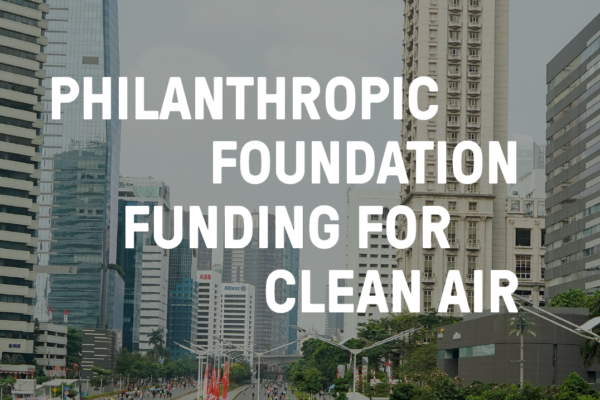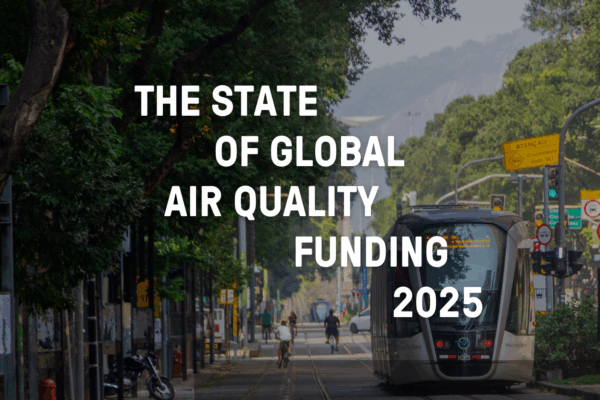Governments worldwide channelled far more aid into projects that prolong fossil fuel use than into tackling air pollution, our new report The State of Global Air Quality Funding 2025 reveals. In just one year, fossil fuel-prolonging funding jumped 80% to $9.5 billion, while clean air support fell by a fifth to $3.7 billion, leaving it stuck at around 1% of international development finance.
Amid wider cuts to aid budgets, USAID shutting down, and US pressure on the World Bank to expand fossil fuel lending, it will be even harder to deliver on the global pledge to halve air pollution deaths by 2040.
The report also shows that the limited funding available is highly unevenly distributed. The Philippines, Bangladesh and China received 65% of outdoor air quality finance in 2023. Meanwhile Sub-Saharan Africa saw a 91% fall to just $11.8 million, equivalent to less than 1% of all global outdoor air quality funding.
Outdoor air pollution causes 5.7 million deaths a year, a figure the World Bank projects will rise to 6.2 million by 2040 without stronger action. It is also responsible for an estimated 1.2 billion lost work days globally each year. Meanwhile around 85% of air pollution comes from burning fossil fuels and biomass.
Earlier in 2025 at the World Health Organization’s (WHO) World Health Assembly, Member States formally endorsed a voluntary target to halve the health impacts of anthropogenic air pollution by 2040. This is the first time air quality has been included in a WHO roadmap with a clear global health target tied to pollution reduction. In parallel, under the Presidency of South Africa, air quality was elevated as a standalone priority for the first time in the G20’s environment and climate workstream.
The report sets out a clear path for governments and development banks to reverse these trends and build on the political momentum created this year at the World Health Assembly and the G20. It calls for clean air objectives to be embedded at the core of climate and development finance—so that existing funding achieves more, ensuring that every project delivers health as well as economic growth and emissions benefits.
This year, governments pledged to halve air pollution harm by 2040, but the money is still flowing the wrong way. With budgets already under pressure and the world’s largest development donor shutting down, we cannot afford to keep bankrolling fossil fuels. Unless we change course, millions more people will die from toxic air. Investing in clean air is one of the fastest, most effective ways to protect health, strengthen economies and tackle climate change. Every dollar spent on fossil fuels pushes that goal further out of reach.
Jane Burston, CEO of Clean Air Fund
The report also underlines the urgency of directing more resources to Africa and other regions currently left behind, where the pollution burden is high but funding is almost non-existent. And it makes the case for a decisive end to aid that prolongs fossil fuel use, redirecting finance instead towards a fairer, cleaner transition. Unless donors take these steps, the landmark WHA pledge risks becoming an empty promise.
Air pollution is not inevitable. It is a problem we know how to solve. The tools exist. The benefits are immediate. […] As South Africa leads the G20 this year, my message is simple: let us ensure clean air becomes not a privilege for some, but a right enjoyed by all.
Dr Dion George, South Africa’s Minister of Forestry, Fisheries and the Environment
More about funding

